Institutional communication for foreigners is not professional
Wednesday 25th March, the College "Carlo Cattaneo" of the Insubria University will talk about immigrants and the level of welcoming and integration. It will list the cases of schools and local health authorities
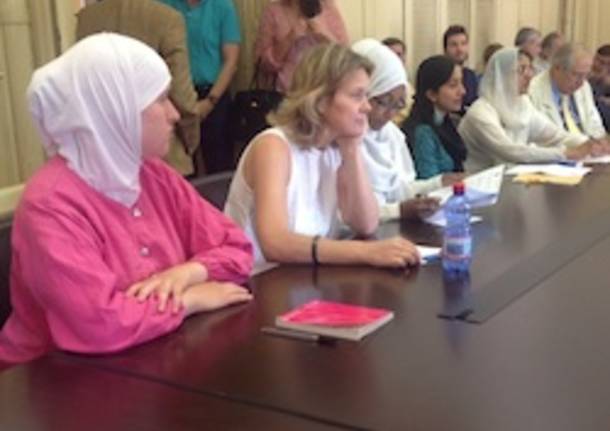
In 1981 in Italy we had 1 foreigner for every 250 residents. Today, the impact on the total population isone for every twelve residents. Yet, Italy does not seem to have noticed much of this social change. It will be supported by some professors of the University of Insubria that data and samples in hand, will demonstrate how foreign immigration has changed the ways of communication and training, entrusted only to improvised experiments of integration.
In schools, for example, the task is given more to the good will of teachers and managers than to institutional projects. The same diminution of support hours poses a serious help problem for those who become close to the culture and Italian language: “The support teacher”, explainsProfessor Gianmarco Gaspari , “is a figure that is a bridge between the foreigner and the community in which they must enter. It is not a matter of just learning the language, but to integrate into a new community. Placing barriers or obstructing the entrance leads only toan isolation of the community both linguistic and social and this is a big problem “
The detailed picture will be presented Wednesday 25th March, at 14.15in the Aula Magna of the College “Carlo Cattaneo”, via Dunant 5, in Varesewhen they will talk about the “Immigration Statistics Dossier”, published annually by ‘UNAR, National Office against Racial Discrimination.
The meeting takes place within the Project “Permanent Observatory on the Italian language”, coordinated by some teachers and staff of the degree in Communication Sciences of theUniversity of Insubria in particular, professors Alfonso Sabatino Annecchiarico, Giulio Facchetti, Gianmarco Gaspari, Alessandra Vicentini.
UNAR operates within the Department for Equal Opportunity of the Presidency of the Council of Ministers. Established in 2003, it has the function to “ensure, in full independence of judgment and in conditions of impartiality, the effectiveness of the principle of equal treatment between persons“, to verify the effectiveness of the protections against discrimination, and to “contribute to removing discrimination based on race and ethnicity.”
According to the final data of 2013, migrants in the world are more than 232 million. In Italy, foreign residents are almost five million in a population of 61 million, that is, eight percent. Noteworthy is the level of education: 10% have a bachelor’s degree, 32% adiploma; minors are over one million, of which 800,000 are enrolled in schools. As we said, in 35 years the situation has changed dramatically it has gone from one foreigner for every 250 residents in the early 80s, to the current ratio one every twelve.
“The migratory phenomena in our country are still linked to the underground and criminal organizations; our school system has from year to year decreased the logistic support and linguistic foreign students, “say the organizers; “and yet in Italy live almost two and a half million families with at least one foreign member. The University has a duty to monitor this situation, to help interact the most active operators on this front and to indicate, if not actual solutions, possible directions of growth. “
In a historical moment in which to understand each other is the real deciding factor, the words of Elias Canetti – the great Bulgarian writer of German language – perfectly introduces the central theme of the meeting: “One doesn’t live a country, one lives a language”. What is being done, in Italy, so that this “living” is peaceful, so that it prepares a better future for us and the next generations? One answer is offered by the intervention of Alessandra Vicentini, Insubria, and Kim Grego, of the University of Milan and Fulbright Scholar in Albany (New York, USA): “In an area as sensitive as the communication of the local health authorities, documents online in English and in the languages of immigrants on the websites are generally poor (which also applies to the local health authority of Varese) and most of the texts to communicate in English with translations immigrants are often qualitatively very poor and not professional. ” The problem, therefore, is to relate effectively to the foreigner: “The lack of professionalism in the translations creates the risk of misunderstandings: ” The University of Insubria, In its role as a cultural institution,” explains Professor Gaspari, “has a duty to propose solutions. And this university has the skills and professionalism, with our students, to provide appropriate tools for integration and communication“.
Other answers will come from Giulio Facchettiwho emphasizes the multiplicity of cultural foundations underlying the modern European and Mediterranean societies investigating the propulsive character of migration and ethnic mixes in the formation of these foundations, and by Elizabeth Moneta Mazza, regarding the cultural identities of young migrants. Sabatino Alfonso Annecchiarico, writer from Argentina, will investigate the delicate short-circuits that are established between language and identity, between citizenship and nationality. Gianmarco Gaspari will discuss the role of Varese, and the University of Insubria in particular, in monitoring a reality crowded with cultural references as diverse and complex. Concludes the presentation of the 2014 work of the dossier by Franco Pittau, outgoing president of the Center for Studies and Research IDOS, internationally renowned specialist in issues related to migration and integration.
Free entry.
TAG ARTICOLO
La community di VareseNews
Loro ne fanno già parte
Ultimi commenti
Takaya su "In questo momento il numero esatto di letti del futuro ospedale unico non è importante"
lenny54 su A Gaza stanno massacrando i bambini
Felice su Sassi contro gli autobus di Autolinee Varesine, identificati e denunciati gli autori
Felice su Rischiano diecimila euro di multa per aver abbandonato rifiuti nei boschi ad Arcisate
UnoAcaso su Posti letto 'raddoppiati' all'ospedale unico Gallarate-Busto: "Una giustificazione insostenibile"
Roberto Morandi su Ancora un incidente in via Forze Armate a Gallarate, investito un ciclista di 13 anni

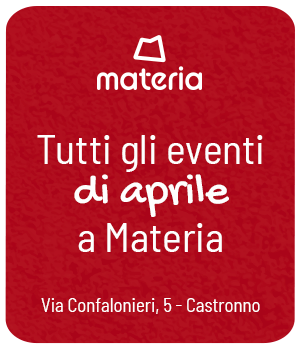
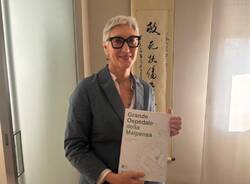





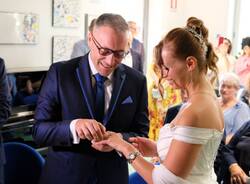


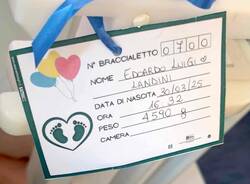



Accedi o registrati per commentare questo articolo.
L'email è richiesta ma non verrà mostrata ai visitatori. Il contenuto di questo commento esprime il pensiero dell'autore e non rappresenta la linea editoriale di VareseNews.it, che rimane autonoma e indipendente. I messaggi inclusi nei commenti non sono testi giornalistici, ma post inviati dai singoli lettori che possono essere automaticamente pubblicati senza filtro preventivo. I commenti che includano uno o più link a siti esterni verranno rimossi in automatico dal sistema.